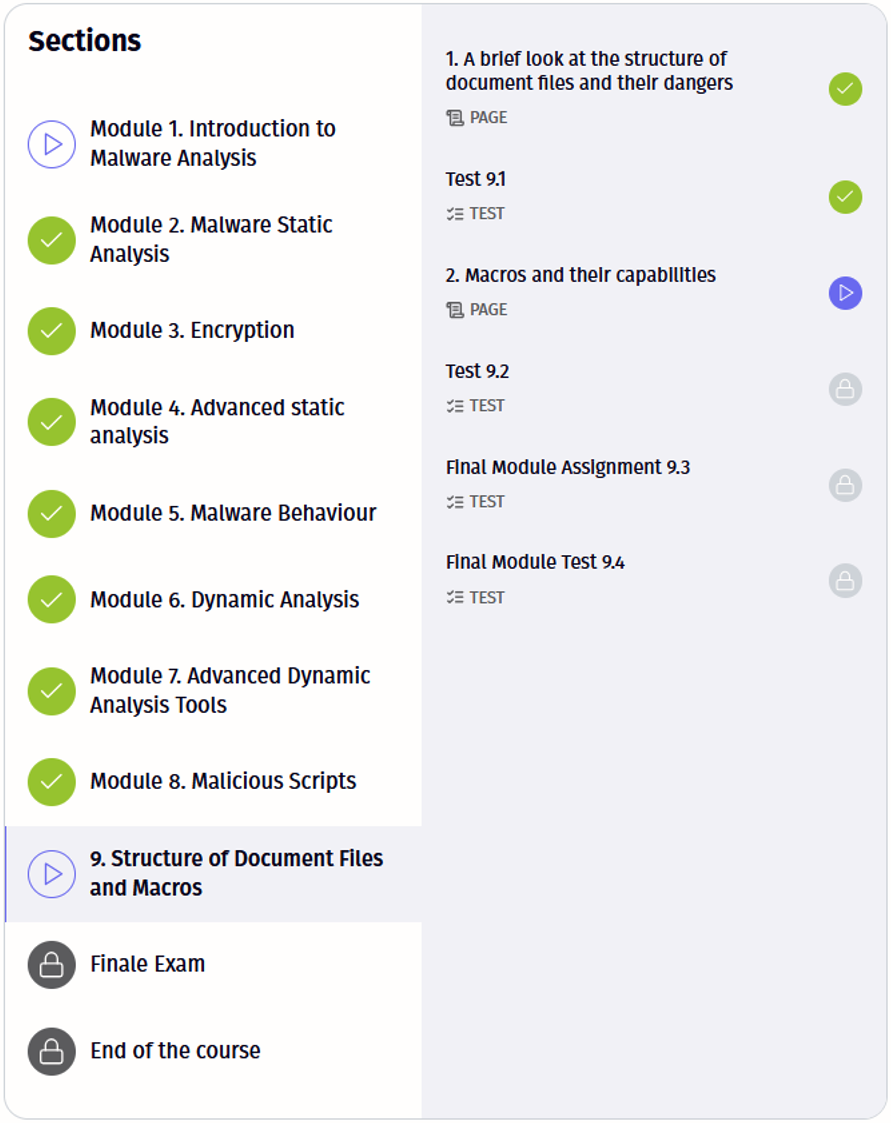
As the demand for qualified professionals skyrockets, universities have a duty to prepare the next generation of malware analysts and threat hunters. Integrating practical training environments from recognized cybersecurity market players into academic curricula might be the best solution for educational institutions. Here’s why.
Why More Universities Choose Courses from Cybersecurity Firms
Learning malware analysis is crucial for anyone entering the cybersecurity field. Educational organizations have two main options: to develop their own thematic curriculum from scratch or use a ready-made expert-supported solution.
Specialized programs like the Security Training Lab from ANY.RUN offer a number of benefits rooted in their experience and expertise. They:
- Bridge the Gap Between Education and Industry: Students learn with the same tools and frameworks that professionals use, making them job-ready from day one.
- Support Active Learning: Engaging with live scenarios and real malware samples deepens understanding and retention more than passive lectures alone.
- Train Independent Thinking: Interactive labs encourage students to experiment, make mistakes safely, and develop investigative instincts crucial in cybersecurity work.
- Enable Scalable, Flexible Teaching: Cloud-based environments allow educators to deliver complex scenarios without local infrastructure, reaching more students with fewer resources.
- Improve Assessment Accuracy: Instructors can evaluate not only theoretical knowledge, but also how well students apply it in real-world situations.
What Key Skills Students Derive from Courses from Cybersecurity Firms
Security Training Lab helps close the gap between theoretical knowledge and real-world expertise — preparing the next generation of cybersecurity professionals to meet today’s challenges and tomorrow’s threats. The program provides:
- Insight into Real-World Threats: Textbooks and simulations can’t replicate the complexity of actual malware. Analyzing real samples shows students how attacks evolve and what they look like in the wild.
- Proactive Defense Techniques: Rather than simply reacting to threats, malware analysts understand attacker behavior and can anticipate future tactics, making organizations more resilient.
- Critical Thinking Skills: Analyzing malware teaches how to dissect complex systems, follow digital trails, and reverse-engineer behavior — skills that apply across all of cybersecurity.
- In-Demand Expertise: Malware analysis is a specialized skill set that few professionals master, making those who do highly sought after in both the public and private sectors.
In an era where cybercrime is growing faster than the workforce prepared to fight it, malware analysis is not just a valuable skill — it's a career foundation.
How Security Training Lab by Cybersecurity Firms Can Enrich Your Curriculum
To meet the growing need for hands-on education, a company like ANY.RUN developed Security Training Lab — a cloud-based platform built for students, instructors, and cybersecurity professionals alike.

Security Training Lab program from ANY.RUN: structure and contents
Security Training Lab embodies a safe, guided environment where learners can:
- Analyze real-world malware samples in a safe, controlled environment of Interactive Sandbox — just like professionals in the field.
- Practice reverse engineering and behavior analysis.
- Follow structured tutorials and progressive challenges.
- Get instant feedback and insights from professional-grade tools.
Benefits for universities and training programs include:
- No setup hassle: fully cloud-based and ready to deploy. Cloud-based access means no need to set up complex environments or worry about local security.
- Up-to-date: based on latest malware samples, techniques, and real-world scenarios, keeping the curriculum relevant.
- Scalable for classrooms and remote learners: supports self-paced, instructor-led, and hybrid learning formats.
- Built-in analytics: instructors can track progress and assess students’ practical skills.
Conclusion
High-quality cybersecurity programs ensure that students graduate with practical, applicable knowledge, not just theory, and are equipped to meet business needs, understanding compliance, forensics, and cyber defense.
Featured Image by Freepik.
Share this post
Leave a comment
All comments are moderated. Spammy and bot submitted comments are deleted. Please submit the comments that are helpful to others, and we'll approve your comments. A comment that includes outbound link will only be approved if the content is relevant to the topic, and has some value to our readers.

Comments (0)
No comment